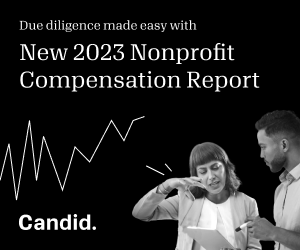Six ways philanthropic organizations can support human rights and health for Ukrainians

In its violent and unlawful invasion of Ukraine, Russia has launched indiscriminate attacks against civilians and the places where they gather, including hospitals, schools, and humanitarian corridors. Thousands of civilians, including children, have been killed and many more injured. Thousands more are in danger of dying in besieged areas cut off from water, food, and electricity. Almost five million refugees have already fled the country, while nearly eight million are internally displaced within Ukraine. Millions more remain at grave risk.
The global spotlight on and solidarity with Ukrainians have been inspiring, with governments, organizations, and individuals rallying in support of Ukraine and its vast humanitarian needs. Still, philanthropic funders can do more and do better to alleviate suffering in Ukraine, meet humanitarian imperatives, and support justice and accountability in several key areas of need.
Here we offer six approaches that should guide where and how philanthropic organizations can support human rights, health, and well-being in Ukraine:
1. Provide humanitarian and medical assistance—without discrimination.
Ukraine remains in the midst of an active conflict, and an immediate need the international community must focus on is providing medical and humanitarian assistance, as well as ensuring medical impartiality. That means, among other things, supporting groups working to protect medical personnel, patients, facilities, and transport from attack or interference; secure unhindered access to medical supplies, care, and treatment; and ensure humane treatment of the sick and injured, regardless of their identity or affiliation.
Organizations like MedGlobal and other critical groups operating in the Ukrainian diaspora like the Ukrainian Medical Association of North America (UMANA) and Razom are working tirelessly and must be supported.
And, amid the chaos of conflict and the instability of the refugee exodus, direct financial assistance provides more flexibility in helping to meet the needs of internally displaced people and refugees. The International Rescue Committee estimates that 50 percent of its budget in the region will be used to give cash directly to Ukrainian refugees, while UNICEF is providing $150 million in direct payments. With nearly 13 million people in fleeing their homes, the scale of need is immense, and additional donors should scale up cash assistance.
2. Build capacity for documenting mass crimes.
Under international law, both Russia and Ukraine are required to protect civilians in armed conflict. Russia and Ukraine must guarantee humanitarian access for medical supplies and humanitarian organizations offering medical care. They also must ensure safety for vulnerable groups, including children, the elderly, and people with disabilities.
Wrenching reports from Ukraine indicate that these obligations are not being upheld and that civilians and “civilian objects” (as defined by the Geneva Conventions) are being cruelly and deliberately targeted by Russian forces—including in the recent bombing of a maternity hospital in Mariupol and a train station in Kramatorsk. It is crucial for any violation to be thoroughly documented as they occur, to ensure key evidence is preserved and can be used at a later point to secure justice and accountability.
Donors should support organizations working with Ukrainian authorities as well as the International Criminal Court (ICC) and other independent, credible accountability mechanisms to collect and analyze documentation of mass crimes in Ukraine. Crucially, this should include training of Ukrainian scientists, clinicians, and researchers, who, as frontline responders, will often be in the best position to document and preserve forensic evidence.
3. Build cases by pursuing accountability for attacks on civilian infrastructure.
Since Russia’s latest invasion of Ukraine began, at least 162 attacks have been perpetrated against healthcare facilities and personnel, resulting in 73 deaths, according to the World Health Organization. While this tally helps illuminate the scale and scope of Russia’s brutal strategy of targeting healthcare targets—in violation of international law—they are almost certainly an undercount. We still need more rigorous monitoring and documentation of these egregious attacks to build cases that can eventually lead to accountability.
Donors should support organizations working to build comprehensive cases that pursue allegations of war crimes concerning Russian attacks targeting Ukrainian medical facilities and other civilian objects. By applying international best practices for investigation—including incentivizing international investigators to work closely and collaboratively with domestic counterparts—these efforts could result in comprehensively documented cases of war crimes ready for prosecution that could be pursued either by prosecutors inside Ukraine, by other countries under the principle of “universal jurisdiction,” or by the ICC.
The global NGO community clearly has a critical role to play here, too, in terms of both user-generated evidence—evidence essentially recorded and gathered by ordinary citizens—as well as in the management and coordination of victims and witnesses. More survivors of atrocities in Ukraine are emerging after two months of relentless attacks by Russian forces on a range of civilian objects, from schools and residential buildings to hospitals and theaters. Many of them are witnesses who can provide valuable testimony or various forms of documentation to corroborate their accounts. They may now be in western Ukraine or across the border in Poland, Moldova, Romania, or farther afield. Gathering these individuals’ testimony in a safe, secure way—and connecting it up with a range of justice and accountability actors—will be critical in the coming weeks and months.
4. Respond to rape in war with survivor-centered care.
The horrifying reports emerging from Bucha and other Kyiv suburbs about Russian forces’ rape of civilians—including children—are likely only the tip of the iceberg. There is an acute and escalating potential for conflict-related sexual violence in Ukraine, as has been perpetrated in other conflicts around the world. Donors should advocate with and resource authorities to ensure sustained access to comprehensive health services, including sexual and reproductive health care and mental health care, for survivors of sexual and gender-based violence (SGBV) in Ukraine.
Donors can play a supportive role by equipping organizations that provide care for survivors of SGBV wherever they are—be it in Ukraine or among the Ukrainian refugee communities in other countries. Clinicians who provide health services should be trained in trauma-informed, survivor-centered care, and should engage in documentation efforts where possible to help hold perpetrators to account. Special attention should be given to psychosocial support for survivors. Access to mental health services is often the most difficult to secure, especially in conflict settings. Resources to support this kind of intervention for survivors and their families are deeply needed and appreciated.
At my organization, Physicians for Human Rights, we are working to provide training on survivor-centered, trauma-informed approaches to medical evaluation and clinical management of physical and psychological sequelae; pediatric evaluations; forensic photography; medical documentation in the context of mass crimes; evidence labeling, preservation, storage, and chain of custody; and crime scene preservation. Donors should support the development and distribution of such materials, as well as their adaptation and translation into Ukrainian.
5. Support Ukrainians and all people who flee persecution equitably.
Many countries have shown exceptional generosity toward Ukrainian refugees, including by amending policies to facilitate their speedy entry and access to supportive resources. The sheer numbers of Ukrainians arriving will no doubt require continued donor support to provide care to these communities, including with physical and psychological rehabilitation when needed. Well-performing resettlement groups should be supported.
However, the crisis in Ukraine has also laid bare a double standard when it comes to Ukrainian refugees compared with those who flee war and persecution from other countries. All too often, Black and Brown asylum seekers and refugees encounter far higher hurdles, such as Title 42 and the Migrant Protection Protocols implemented by the United States, as well as more outright hostility and xenophobia from some host communities.
The right to seek asylum is protected under international law and this right should be protected for all, whether one flees from violence in Honduras, Cameroon, or Ukraine. Donors should support the communities and organizations that provide resources and advocacy for people fleeing the world’s other conflict and crises.
6. Empower Ukrainian professionals and foster coordination
Above all else, we urge international donors to elevate the voices of Ukrainian experts in country, be they clinicians, lawyers, civil society activists, journalists, or other professionals. While there are, without a doubt, many roles for international humanitarian and human rights organizations to play, we should look to the leadership of Ukrainians to define what the needs are and how best to address them. Donors can do much to strengthen the work of Ukrainian nationals directly or support partnerships and collaborations between Ukrainian actors and international actors.
Donors should also take stronger measures to encourage coordination, efficiency, and collaboration among the donor community and the initiatives they are supporting. There is a deluge of organizations responding to the crisis in Ukraine, which means there is enormous risk of duplicating efforts, compromising evidence, and creating competition for scarce resources. Donors can and must play a leadership role in urging and incentivizing more collaboration among civil society organizations within and beyond Ukraine.
Christian De Vos is director of research and investigations at Physicians for Human Rights. He previously served as managing advocacy officer with the Open Society Justice Initiative and is the author of Complementarity, Catalysts, Compliance: The International Criminal Court in Uganda, Kenya, and the Democratic Republic of Congo (Cambridge University Press, 2020).
Find more articles in Philanthropy News Digest about philanthropy’s response to the war in Ukraine.
Find more updates and resources on Candid’s special issue page on the philanthropic response to the war in Ukraine.




